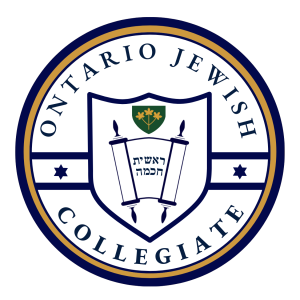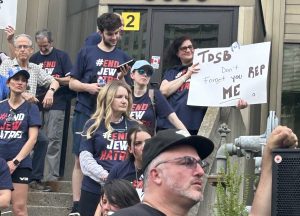 Avi Schaefer was nine when he first lived in Israel. He was 18 when he left his home in California to serve as a lone soldier in the Israel Defence Forces. He was 21 when he started reaching out to Palestinian and Jewish students as a freshman at Brown University in Providence, R.I.
Avi Schaefer was nine when he first lived in Israel. He was 18 when he left his home in California to serve as a lone soldier in the Israel Defence Forces. He was 21 when he started reaching out to Palestinian and Jewish students as a freshman at Brown University in Providence, R.I.
Avi Schaefer, who was killed by a drunk driver in February, joined the IDF as a lone soldier before attending Brown University.
And he was 21 when he died.
But he’s still changing the way Israel is viewed on campus. His family is making sure of that.
Schaefer, who was killed by a drunk driver in February this year, spent most of his freshman year at Brown working to create a dialogue between Israeli and Palestinian students and dispell misconceptions about Israel.
Using his charismatic personality and IDF background, Schaefer helped to humanize the conflict in the Middle East by sharing his story and his hope that, while he fought in the Israeli army, his children wouldn’t have to.
A primary aim of the Avi Schaefer Fund, an organization created by his family, is to continue Schaefer’s work in trying to promote peace.
“That’s what Avi was doing,” said his father, Rabbi Arthur Gross-Schaefer, in a phone interview, explaining that, at Brown, Schaefer joined a student group called Common Ground, whose stated goal was to open a dialogue about the Middle East. Instead, it focused mainly on the Palestinian perspective.
“He said [to them], ‘You’re not being fair. You’re not being honest…’ His goal was to say, ‘I’m an Israeli soldier, look at me, hear [my story], I’ll hear yours,’” Rabbi Gross-Schaefer said.
“With that type of approach, it’s hard to say, ‘I’m not going to listen to you because you’re so terrible.’ That’s why we’re trying to create the Avi Schaefer Fund.”
The fund plans to sponsor fellowships for IDF soldiers studying at colleges or universities in North America. The former soldiers would be trained to continue with Schaefer’s role as what his family calls a “soldier of peace” and would receive a stipend.
Although the rabbi and his family are starting to reach out to Jewish organizations, the fund is currently in its early stages.
It also hopes to ultimately facilitate conferences that would bring together Jewish and Palestinian students, as well as to work with universities to integrate both Israeli and Palestinian perspectives into the curriculum.
“I’ve been a professor for 30 years and a Hillel rabbi at different campuses. Part of the problem is that a lot of campuses I’ve been exposed to… have become very unfriendly to discussions about Israel,” said Rabbi Gross-Schaefer, who is a professor at Loyola Marymount University, adding that, at this point, the fund is run on private donations, many of which are received internationally through PayPal.
Rabbi Gross-Schaefer hopes to start working with schools in Canada and the United States by this fall, and to have former IDF soldiers on campuses by next year.
These soldiers will go through a screening process and basic training in how to open positive dialogues on campus.
For Schaefer’s twin brother, Yoav, who currently lives in Israel, the fund is a way to continue a legacy that started during their childhood.
“We lived in a Zionist household,” Yoav, 22, said, adding that the family spent a year living in Israel during their father’s sabbatical.
“We decided Israel was a place we wanted to have a connection with. Over the years, it became more of a serious endeavour,” he said.
The two brothers joined the IDF together, hoping not for war, but for peace.
“We really felt we were fighting to create a lasting peace,” Yoav said. “It was clear to us when Avi passed away that we would create a tangible way to continue his life and legacy. We realized that Avi had already shown us the project we would do.”
Noah Kochman, the advisor for communications and government relations for the Canadian Federation of Jewish Students, knew Schaefer from various Jewish conferences. Kochman sees the fund as an important step towards a better campus environment.
“I think the message of Israeli soldiers coming to campus to talk about their perspectives or a two-state solution will help to mitigate some of the stereotypes, and I think some of the lies and mischaracterizations of young people in Israel,” he said.
For more information, visit www.avischaeferfund.org.






